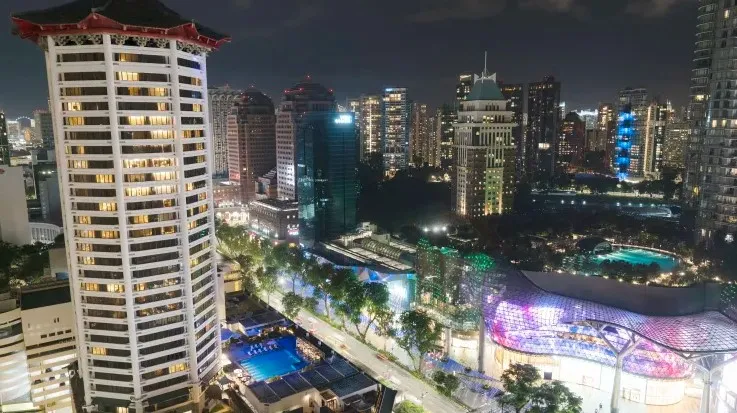简体中文
繁體中文
English
Pусский
日本語
ภาษาไทย
Tiếng Việt
Bahasa Indonesia
Español
हिन्दी
Filippiiniläinen
Français
Deutsch
Português
Türkçe
한국어
العربية
China’s rich are moving their money to Singapore. Beijing’s crackdown is one of the reasons
Abstract:As Beijing pushes for “common prosperity” and political turmoil threatens Hong Kong, Singapore has become a safe harbor for some of the region’s wealthiest tycoons and their families.
KEY POINTS
An increasing number of affluent Chinese are setting up family offices in Singapore.
The trend appeared to pick up last year after Beijings sudden crackdown on the education industry and emphasis on “common prosperity” — moderate wealth for all, rather than just a few.
Over the last 12 months, inquiries about setting up a family office in Singapore have doubled at Jenga, a five-year-old accounting and corporate services firm, according to its founder Iris Xu. She said the majority of inquiries come from people in China or emigrants from the country.
More and more wealthy Chinese are worried about keeping their money on the mainland and some see Singapore as a safe haven.
Since protests disrupted Hong Kong‘s economy in 2019, affluent Chinese have looked for alternative places to store their wealth. Singapore proved attractive because of its large Mandarin Chinese-speaking community and, unlike many countries, it doesn’t have a wealth tax.
The trend appeared to pick up last year after Beijings sudden crackdown on the education industry and emphasis on “common prosperity” — moderate wealth for all, rather than just a few.
That‘s according to CNBC’s interviews with firms in Singapore that are helping wealthy Chinese move their assets to the city-state via the family office structure.
A family office is a privately held company that handles investment and wealth management for an affluent family. In Singapore, setting up a family office typically requires at least $5 million in assets.
Over the last 12 months, inquiries about setting up a family office in Singapore have doubled at Jenga, a five-year-old accounting and corporate services firm, according to its founder Iris Xu. She said the majority of inquiries come from people in China or emigrants from the country.
About 50 of her clients have opened family offices in Singapore — each with at least $10 million in assets, Xu said.
Chinas rapid economic growth has minted hundreds of billionaires in just a few decades. Many more joined their ranks their last year, according to Forbes.
That brought the total number of billionaires in China to 626, second only to the United States 724 billionaires, the data showed.
Xu said her Chinese clients “believe there are plenty of opportunities to make a fortune in China, but they are not sure whether it is safe for them to park money there,” according to a CNBC translation of the interview in Mandarin.
‘Common prosperity’ worries
New family office-related work is coming disproportionately from Chinese clients, said Ryan Lin, a director at Bayfront Law in Singapore. His firm also has clients from India, Indonesia and parts of Europe.
Mainland China‘s tight capital controls — an official limit of $50,000 in overseas foreign exchange a year — limit those billionaires’ ability to move money out of the country, Lin said.
That cap is set by the State Administration of Foreign Exchange, which did not immediately respond to a CNBC request for comment.
Although those capital controls mean many Chinese clients are opening family offices with smaller amounts of capital, Lin said most own revenue-generating business outside the mainland.

Disclaimer:
The views in this article only represent the author's personal views, and do not constitute investment advice on this platform. This platform does not guarantee the accuracy, completeness and timeliness of the information in the article, and will not be liable for any loss caused by the use of or reliance on the information in the article.
Read more

Morgan Stanley Gains Approval to Launch Futures Business in China
Morgan Stanley secures regulatory approval to enter China's futures market, expanding its presence and joining J.P. Morgan in the rapidly growing derivatives sector.

Currency Fluctuations: What It Means When a Country's Currency Rises or Falls
When a country’s currency appreciates or depreciates in value, it reflects the underlying shifts in its economy and global market dynamics. For forex traders, understanding what drives these fluctuations—and how to strategically prepare for them—can make the difference between profit and loss in an ever-volatile market.

Hong Kong’s Bold Move: AI Framework & Tax Incentives Set to Boost Fintech Growth
Hong Kong is strengthening its position as a fintech leader with the introduction of new policies that support artificial intelligence (AI) integration in the financial sector and explore tax breaks for virtual asset investments.

Yuan Volatility Surges as US Election Approaches
As US elections near, yuan volatility surges. Traders brace for tariff risks and market swings, preparing for potential economic shifts under Trump or Harris policies.
WikiFX Broker
Latest News
ASIC Sues Binance Australia Derivatives for Misclassifying Retail Clients
Geopolitical Events: What They Are & Their Impact?
Top 10 Trading Indicators Every Forex Trader Should Know
WikiFX Review: Is FxPro Reliable?
Malaysian-Thai Fraud Syndicate Dismantled, Millions in Losses Reported
Trading frauds topped the list of scams in India- Report Reveals
Why Do You Feel Scared During Trade Execution?
WikiFX Review: Something You Need to Know About Markets4you
Revolut Leads UK Neobanks in the Digital Banking Revolution
Fusion Markets: Safe Choice or Scam to Avoid?
Currency Calculator



